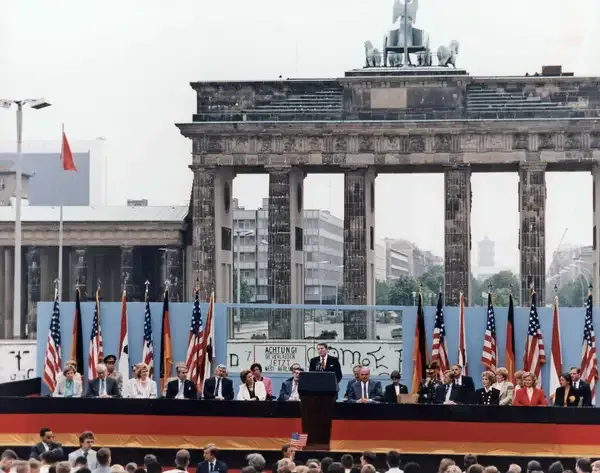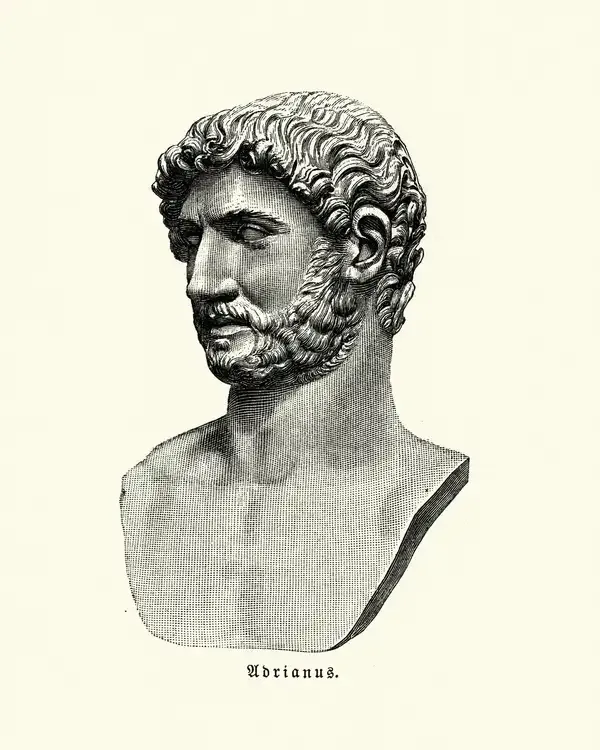“Mr. Gorbachev, Tear Down This Wall!”: Reagan’s Berlin Speech
On June 12, 1987, U.S. President Ronald Reagan delivered a powerful speech at the Brandenburg Gate in West Berlin, challenging Soviet leader Mikhail Gorbachev to dismantle the Berlin Wall. This speech symbolized a call for increased freedom and openness in Eastern Europe during the Cold War. Reagan's demand for the wall's removal became an iconic moment, representing the broader push for the end of Soviet-imposed divisions and the eventual reunification of Germany.

The speech delivered by President Ronald Reagan on June 12, 1987, at the Brandenburg Gate in Berlin is one of the most iconic moments in Cold War history. With the powerful declaration, “Mr. Gorbachev, tear down this wall!” Reagan called for the dismantling of the Berlin Wall, a symbol of the division between East and West. This article explores the significance of this moment, the context surrounding Reagan's speech, and its lasting impact on the world.
The Context of Reagan’s Berlin Speech
To understand the weight of Reagan’s words, it’s crucial to consider the geopolitical climate of the time. The Berlin Wall was erected in 1961, dividing East and West Berlin, and became a stark representation of the ideological struggle between communism and democracy. By the late 1980s, tensions were high, with the Soviet Union under Mikhail Gorbachev beginning to implement reforms such as glasnost (openness) and perestroika (restructuring).
Reagan's speech was delivered at a time when the Cold War was entering a new phase. The United States had taken a more aggressive stance against the Soviet Union, and there was a growing sense that the status quo could not continue. Reagan's bold challenge to Gorbachev was not just a rhetorical flourish; it was a direct appeal to the people of East Germany and a call to action that resonated globally.
Key Themes of the Speech
Reagan's Berlin speech was rich with themes that highlighted his vision for freedom and democracy. Here are some of the key themes:
| Theme | Description |
|---|---|
| Freedom | Reagan emphasized the importance of freedom for all people, contrasting the oppressive regime of East Germany with the democratic values of the West. |
| Unity | He called for a united Europe and a collaborative effort to overcome the divisions caused by the Wall. |
| Hope | Reagan inspired hope for a future without the Wall, suggesting that change was possible and that the people of East Germany could achieve their freedom. |
| Challenge to Authority | The phrase “tear down this wall” directly challenged the authority of the Soviet regime, showing solidarity with those who were oppressed. |
The Impact of Reagan's Speech
Reagan’s speech had immediate and long-term effects, not only on the people of Germany but also on the global stage. The boldness of his words sparked a sense of urgency and possibility among Eastern Europeans yearning for freedom. It galvanized movements for change in countries like Poland and Czechoslovakia, where citizens began to rise up against authoritarian regimes.
Furthermore, the speech is considered a pivotal moment in the eventual fall of the Berlin Wall on November 9, 1989. Reagan's call to Gorbachev was not merely rhetorical; it was a moment of defiance that encouraged the citizens of East Germany to envision a different future. The Wall’s collapse symbolized the end of the Cold War and the triumph of democracy over communism.
Reagan’s Rhetoric: A Study in Leadership
Analyzing Reagan’s rhetoric reveals much about his leadership style. His ability to connect with the audience, both in Berlin and across the globe, showcased his skills as a communicator. By using clear and direct language, he made the complex issues of the Cold War accessible and urgent.
Reagan’s speech also reflects his belief in the power of individual agency. By addressing Gorbachev directly, he not only challenged the Soviet leader but also empowered the people of East Germany. This approach exemplifies how great leaders use rhetoric to inspire action and drive change.
Legacy of the Speech
The legacy of Reagan’s Berlin speech continues to resonate in contemporary discussions about freedom, democracy, and the role of the United States in global affairs. The phrase “tear down this wall” has been referenced in various contexts, symbolizing the fight against oppression and the pursuit of liberty.
Today, as we navigate new geopolitical challenges, Reagan’s message serves as a reminder of the importance of standing up for democratic values and supporting those who strive for freedom worldwide. The speech remains a powerful testament to the impact of strong leadership and the enduring belief that walls can, and should, be torn down.
Conclusion
Reagan’s Berlin speech was more than just a call to action; it was a defining moment in history that encapsulated the struggle for freedom and the power of hope. As we reflect on this pivotal moment, we recognize the ongoing relevance of Reagan’s words and the need for continued advocacy for democracy and human rights around the world.












